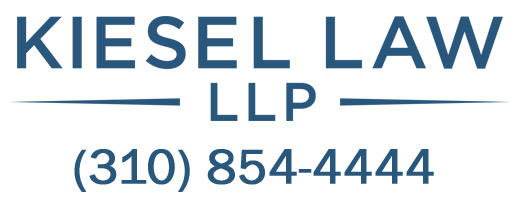Exploring the Statute of Limitations in California Class Action Cases
It’s never easy dealing with the fallout of someone else’s negligence or harmful actions. Often, people who have suffered physical, emotional, or financial damage need time to process the experience and heal. Unfortunately, for those interested in seeking compensation in a court of law, the clock is ticking.
Although class action lawsuits can help address widespread grievances by allowing individuals with common claims to come together as a unified group, they are limited by the statutes of limitations in California. Waiting too long to file a lawsuit could result in the claim being dismissed outright.
For that reason, it’s important to have an experienced and knowledgeable attorney by your side. If you’re considering pursuing a class action claim, Kiesel Law can help you identify which statute of limitation applies to you. When it comes to getting you the justice you deserve, we know that every second counts. Don’t settle for anything less; contact Kiesel Law today.
What is a Statute of Limitations?
A lawsuit statute of limitations is a legal concept that sets a specific time period during which a lawsuit must be initiated. Once this time period expires, a plaintiff generally loses the right to file a lawsuit based on the same claim. Statutes of limitations vary depending on the type of case and jurisdiction, including class action lawsuits.
What is the Class Action Statute of Limitations in California?

In California, the class action statute of limitations is typically determined by the underlying legal claims asserted in the lawsuit. Since class action lawsuits can involve various types of claims, the statute of limitations may vary. To help you determine what the lawsuit statute of limitations applies to your case, here are some important things you should know:
The Standard Statute of Limitations in California
For many class action lawsuits in California, the applicable statute of limitations is generally four years. This four-year period begins to run from the date when the cause of action accrues. In other words, it starts from the date when the alleged wrongful conduct occurred or the date when the plaintiff reasonably should have discovered the injury or harm.
For example, in a class action lawsuit related to a defective product, the four-year statute of limitations may begin when the product is purchased if the defect is immediately apparent. However, if the defect is latent and not discoverable until later, the four-year clock may start ticking when the defect becomes apparent or when it should have been discovered through reasonable diligence.
Fraudulent Concealment Exception
In some cases, defendants may attempt to conceal their wrongful actions, making it difficult for plaintiffs to discover the harm or injury within the standard statute of limitations period. To address this, California recognizes the fraudulent concealment exception.
Under this exception, the statute of limitations may be tolled (paused) if the defendant actively conceals information related to the cause of action. In such cases, the four-year period starts when the plaintiff discovers the fraud or harm, or when they should have discovered it through reasonable diligence.
Specific Statutes and Exceptions
Certain types of class action lawsuits may be subject to specific statutes of limitations in California. For example, claims under the California Unfair Competition Law (UCL), California False Advertising Law (FAL), or the California Consumer Legal Remedies Act (CLRA) often have distinct timeframes and requirements. It’s crucial to be aware of these specific statutes when filing class actions based on these laws.
Practical Considerations for Class Action Plaintiffs

When considering a class action lawsuit helps to be aware of the statute of limitations in California and the specific timelines applicable to your case. Here are some key items to keep in mind:
Timely Action
Act promptly if you believe you have a valid class action claim. Delay in pursuing legal action may result in the loss of your right to bring a lawsuit.
Legal Counsel
Consult with an experienced attorney who specializes in class action lawsuits. They can help you understand the statute of limitations relevant to your case and ensure compliance with all legal requirements.
Investigation
Conduct a thorough investigation to determine when the cause of action accrued and whether any exceptions, such as fraudulent concealment, may apply.
Class Certification
Keep in mind that the statute of limitations may vary for individual class members, but it typically runs from the date of injury or discovery. The court will consider these variations during the class certification process.
Don’t Wait Another Second. Contact Kiesel Law Now
If you’re not an experienced legal professional, it can be difficult to keep track of the different statutes of limitations in California and their various exceptions. That’s why it doesn’t pay to wait.
If you’ve been thinking about initiating a class action lawsuit, personal injury lawsuit, or other lawsuit in the state of California, don’t put it off. If you wait long, you could miss your chance to earn the compensation to which you’re entitled. No one understands the ins and outs of California’s lawsuit statutes of limitations better than Kiesel Law. Contact us today for more information.


